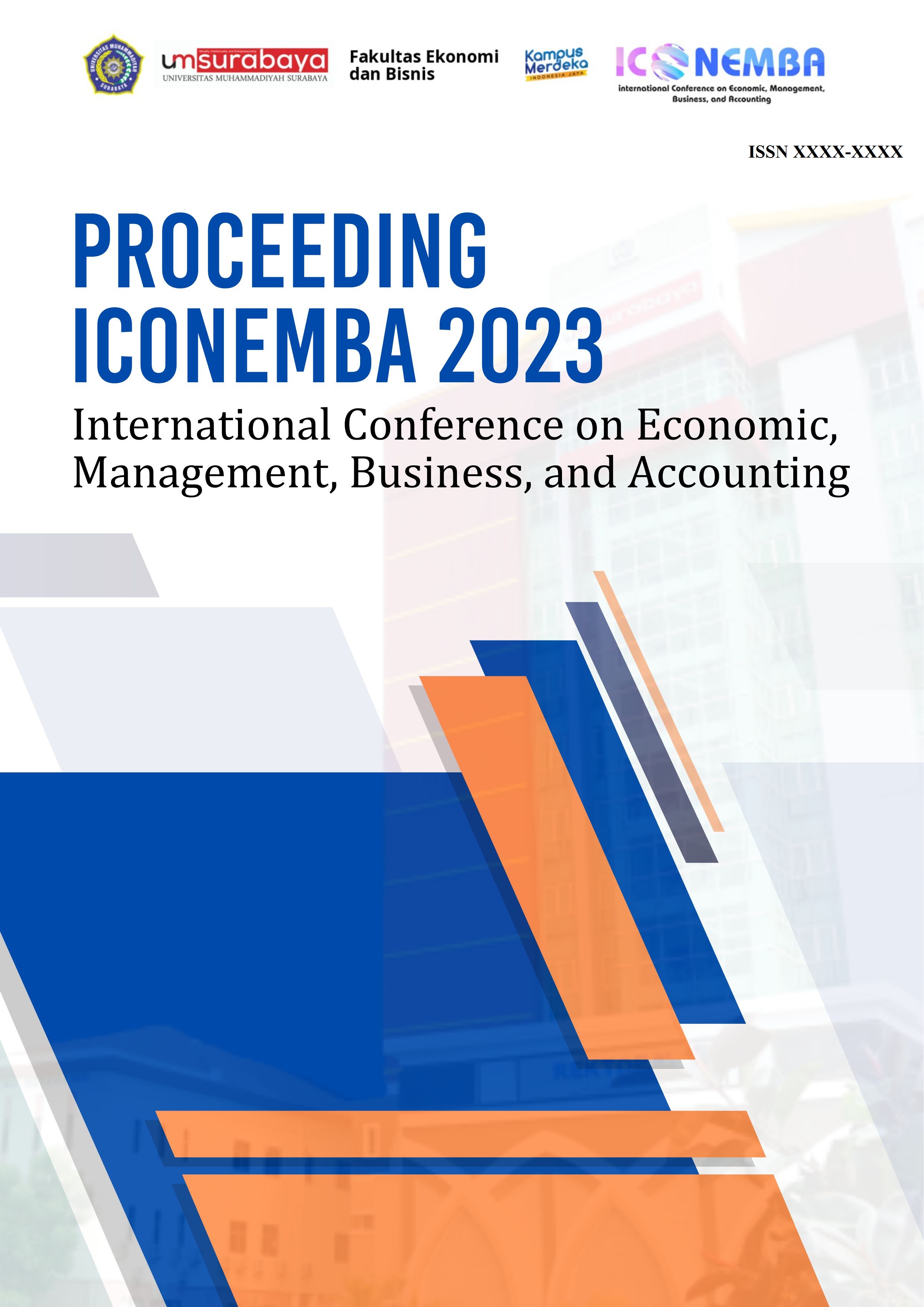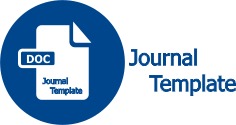Effect CeoNarcissim On Tax Avoidance With Institusional Ownership As A Moderating (Empirical Study of Financial Sector Companies Listed on the Indonesian Stock Exchange for the 2019-2022 Period)
DOI:
https://doi.org/10.30651/iconemba.v1i1.22637Keywords:
Ceo Narcism, Tax Avoidance, Institutional OwnershipAbstract
The aim of this research is to determine the influence of the independent variable CEO Narcism, the dependent variable tax avoidance and ownership as a moderating variable in measuring CEO Narcism in carrying out Tax Avoidance and whether these two variables can be strengthened or weakened by institutional ownership of financial sector companies listed on the Stock Exchange Indonesia. The research method used is a quantitative method. The population in this study are financial sector manufacturing companies listed on the Indonesia Stock Exchange for the 2019-2022 period. The sample in this study used a purposive sampling technique, based on the specified criteria, a sample of 43 samples was obtained. The type of data used is secondary data in the form of the company's annual report. The data analysis technique used is analysis. The Data Analysis Method used in this research is: Descriptive Statistics, Classic Assumption Test, Multiple Linear Regression Analysis with Moderated Regression Analysis and hypothesis testing.
The research results show that the results of data analysis show that CEO narcissism has no effect on tax avoidance. This means that CEOs who have low or high levels of narcissism have no effect on tax avoidance, because the government through the DJP has provided tax incentives through interest charges, utilization of fiscal loss compensation. to reduce the amount of tax burden borne by the company. And institutional ownership is not able to moderate CEO Narcissism towards Tax Avoidance. This means that even though the level of institutional ownership is high in the company, institutional ownership is still unable to moderate CEO Narcissism towards tax avoidance because the company is unable to practice tax avoidance even though it has low and high levels of narcissistic CEO characters
References
Africa, Rizki. 2021. “Institutional Ownership Against Tax Avoidance.” Balance: Journal of Accounting and Business 6 (2): 132. https://doi.org/10.32502/jab.v6i2.3968.
Al-Shammari, Marwan, A. Rasheed, and Hussam A. Al-Shammari. 2019. “CEO narcissism and corporate social responsibility: Does CEO narcissism affect CSR focus?” Journal of Business Research 104 (May 2018): 106–17. https://doi.org/10.1016/j.jbusres.2019.07.005.
Amran and Mira. 2020. “The Effects of CEO Narcissism and Leverage on Tax Avoidance.” Mirai Management Journal 5 (1): 293–304.
Annisa, Nuralifmida Ayu. 2008. "THE INFLUENCE OF CORPORATE GOVERNANCE ON Nuralifmida Ayu Annisa Graduated from Kurniasih Sebelas Maret University," 123–36.
Chatterjee, Arijit, and Donald C. Hambrick. 2007. “It's all about me: Narcissistic chief executive officers and their effects on company strategy and performance.” Administrative Science Quarterly 52 (3): 351–86. https://doi.org/10.2189/asqu.52.3.351.
Desai, Mihir A., and Dhammika Dharmapala. 2011. "Taxation and Corporate Governance: An Economic Approach." SSRN Electronic Journal. https://doi.org/10.2139/ssrn.983563.
Doho, Sicily Zealion, and Eko Budi Santoso. 2020. "The Influence of CEO Characteristics, Independent Commissioners, and Audit Quality on Tax Avoidance." Indonesian Accounting and Taxation Media 1 (2): 169–84. https://doi.org/10.37715/mapi.v1i2.1408.Dyreng, Scott D., Michelle Hanlon, dan Edward L. Maydew. 2010. “The effects of executives on corporate tax avoidance.” Accounting Review 85 (4): 1163–89. https://doi.org/10.2308/accr.2010.85.4.1163.
Ernawan, Kadek, and Debby Ratna Daniel. 2020. "Measurement of CEO Narcissism in Research in Business, Management and Accounting: A Literature Study." JOURNAL OF ACCOUNTING AND BUSINESS: Journal of the Accounting Study Program 6 (1): 46–58. https://doi.org/10.31289/jab.v6i1.2861.
Falah, Laila Jahidatul, and Aria Farah Mita. 2020. "The Role of CEO Narcissism on ESG Disclosure in ASEAN-5 Countries." Journal of Accounting and Finance Research 8(2): 393–404. https://ejournal.upi.edu/index.php/JRAK/article/view/26367.
Faramitha, Chindy Yolanda, Sharifuddin Husen, and Muhammad Anhar. 2020. "The Effect of Business Risk on Tax Avoidance with Leverage as an Intervening Variable (Emperical Study of Manufacturing Companies Listed on the Indonesian Stock Exchange)." Journal of Accounting and Management 17 (01): 73–81.
Fatfouta, Ramzi. 2019. “Facets of narcissism and leadership: A tale of Dr. Jekyll and Mr. Hyde?” Human Resource Management Review 29(4): 0–1. https://doi.org/10.1016/j.hrmr.2018.10.002.
Farouq, S.M. (Ed). 2018. Tax Law in Indonesia. Kencana: Jakarta
Hamzah, Muhammad Fadhil, Muhammad Reza Ramdani, and Aditya H P K Putra. 2018. "Factors that influence taxpayer compliance (Empirical Study at KPP Pratama Sidrap Regency). Related to the self-assessment system, people often think that taxes are a burden because they h" 1 (1): 1–184 .
Hsieh, Tien Shih, Zhihong Wang, and Sebahattin Demirkan. 2018. "Overconfidence and tax avoidance: The role of CEO and CFO interaction." Journal of Accounting and Public Policy 37(3): 241–53.
https://doi.org/10.1016/j.jaccpubpol.2018.04.004.
Khurana, Inder K., and William J. Moser. 2013. "Institutional shareholders' investment horizons and tax avoidance." Journal of the American Taxation Association 35 (1): 111–34. https://doi.org/10.2308/atax-50315.
Lastyanto, Wildan Dwi, and Doddy Setiawan. 2022. "The Influence of Institutional Ownership on Tax Avoidance of Manufacturing Companies in Indonesia (2017-2019)." Trisakti Accounting Journal 9 (1): 27–40. https://doi.org/10.25105/jat.v9i1.12717.
Lestari, Nanik, and Selvy Agita Ningrum. 2018. "The Effect of Profit Management and Tax Avoidance on Company Value with Audit Quality as a Moderating Variable." Journal of Applied Accounting and Taxation 3(1): 99–109.
Morck, R, A Shleifer, and R W Vishny. 1986. "Management Ownership and Corporate Performance: An empirical analysis." NBER working paper 2055.
Ngadiman, Ngadiman, and Christiany Puspitasari. 2017. "The Influence of Leverage, Institutional Ownership, and Company Size on Tax Avoidance in Manufacturing Sector Companies Listed on the Indonesian Stock Exchange 2010-2012." Journal of Accounting 18(3): 408–21. https://doi.org/10.24912/ja.v18i3.273.
Riswanda, M., & Ghozali, I. (2020). Tips & Trick Android Root:Cara Cepat dan Mudah Belajar Tips & Trick Android. Jakad Media Publishing. www.nandroid19.com
ZamZami, M. R., Wibowo, N. C., Ana Wati, S. F., Ghozali, I., & Imawan, M. R. (2024). Rancang Bangun Sistem Informasi Berbasis Web Menggunakan Metode Waterfall. CYCLOTRON, 7(01), 61–66. https://doi.org/10.30651/cl.v7i01.21084
Rifqi Zamzami, M., Cahyo Wibowo, N., Seftin Fitri Ana Wati, dan, & Pembangunan Nasional Veteran Jawa Timur Jl Rungkut Madya No, U. (2024). CYCLOTRON : Jurnal Teknik Elektro Rancang Bangun Sistem Informasi Telemedicine Berbasis Web Menggunakan Metode Waterfall. CYCLOTRON, 7(01), 61–66. https://journal.um-surabaya.ac.id/cyclotron/article/view/21084
O'Reilly, Charles A., Bernadette Doerr, and Jennifer A. Chatman. 2018. “‘See You in Court’: How CEO narcissism increases firms’ vulnerability to lawsuits.” Leadership Quarterly 29(3): 365–78. https://doi.org/10.1016/j.leaqua.2017.08.001.
Pratomo, Dudi, Muhamad Rafki Nazar, and Rifqi Aziz Pratama. 2022. "The Influence of Inventory Intensity, Executive Character, CEO Characteristics on Tax Avoidance in Manufacturing Companies Listed on the Indonesia Stock Exchange (BEI) in 2016-2020." Batanghari University Jambi Scientific Journal 22 (3): 1999. https://doi.org/10.33087/jiubj.v22i3.2871.
Razak, Linda Arisanty, and Ismail Badollahi. 2020. “The Role of CEO Narcissism in Creating Firm Value.” International Journal of Innovative Science and Research Technology 5 (11): 221–25.









